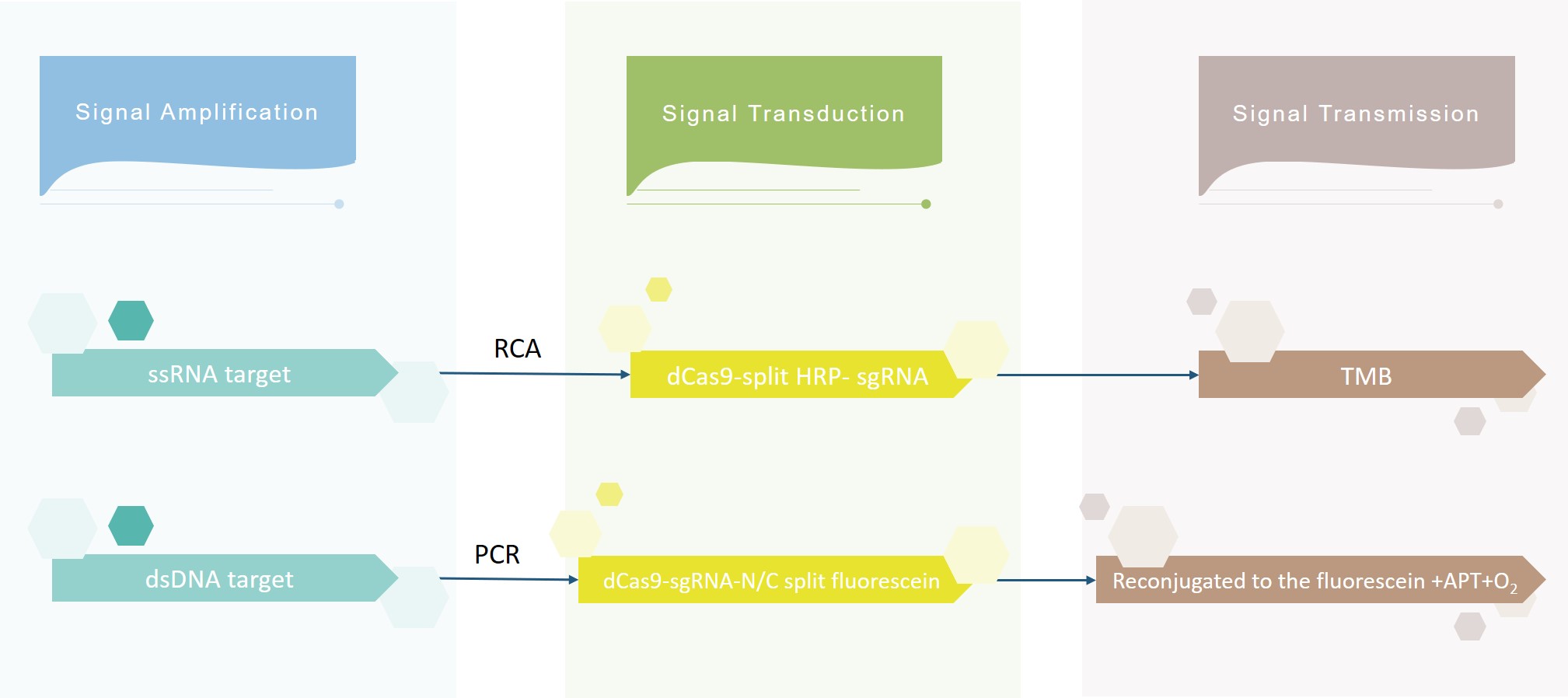The CRISPR/Cas system is an adaptive immune system widely found in most bacteria. The CRISPR/Cas system detection technology has three stages of adaptation, expression, and interference, which are tailored to convert the sequence information of target nucleic acids into detectable signals such as fluorescence and colorimetric values to achieve specific target detection. The CRISPR/Cas biosensing system built by Lifeasible is a universal platform for nucleic acid detection, which can be used in plant pathogen detection, genotyping, gene mutation detection, and single nucleotide polymorphism identification. The system is characterized by high sensitivity, specificity, speed, and low cost and can achieve multiple detections of target nucleic acids.
 Figure 1. Schematic mechanism of CRISPR/Cas detection system.
Figure 1. Schematic mechanism of CRISPR/Cas detection system.
Fungal, bacterial, and viral plant diseases are serious threats to crop production and quality safety, e.g., Fusarium graminearum and Fusarium verticillioides are responsible for maize ear rot, stem rot, and wheat blast. Rice black-streaked dwarf virus (RBSDV), on the other hand, migrates and spreads between rice, wheat, and maize hosts via Delphacodes striatella, seriously threatening rice, wheat, and maize production. We have established a plant pathogen detection system based on the CRISPR/Cas system, which is fast, accurate, and sensitive. We can provide technical support for early warning and green prevention and control of diseases.
Lifeasible's CRISPR/Cas-based biosensor system is based on the specific recognition of pathogen nucleic acid sequences by nucleic acids or probes. It amplifies biological signals and converts them into easily detectable physicochemical signals, which can be processed to achieve qualitative or quantitative detection of plant pathogens. Please feel free to contact us for more information about CRISPR/Cas system for plant pathogen detection.
Lifeasible has established a one-stop service platform for plants. In addition to obtaining customized solutions for plant genetic engineering, customers can also conduct follow-up analysis and research on plants through our analysis platform. The analytical services we provide include but are not limited to the following:
Get Latest Lifeasible News and Updates Directly to Your Inbox
Adaptive Evolutionary Mechanism of Plants
February 28, 2025
Unraveling Cotton Development: Insights from Multi-Omics Studies
February 27, 2025